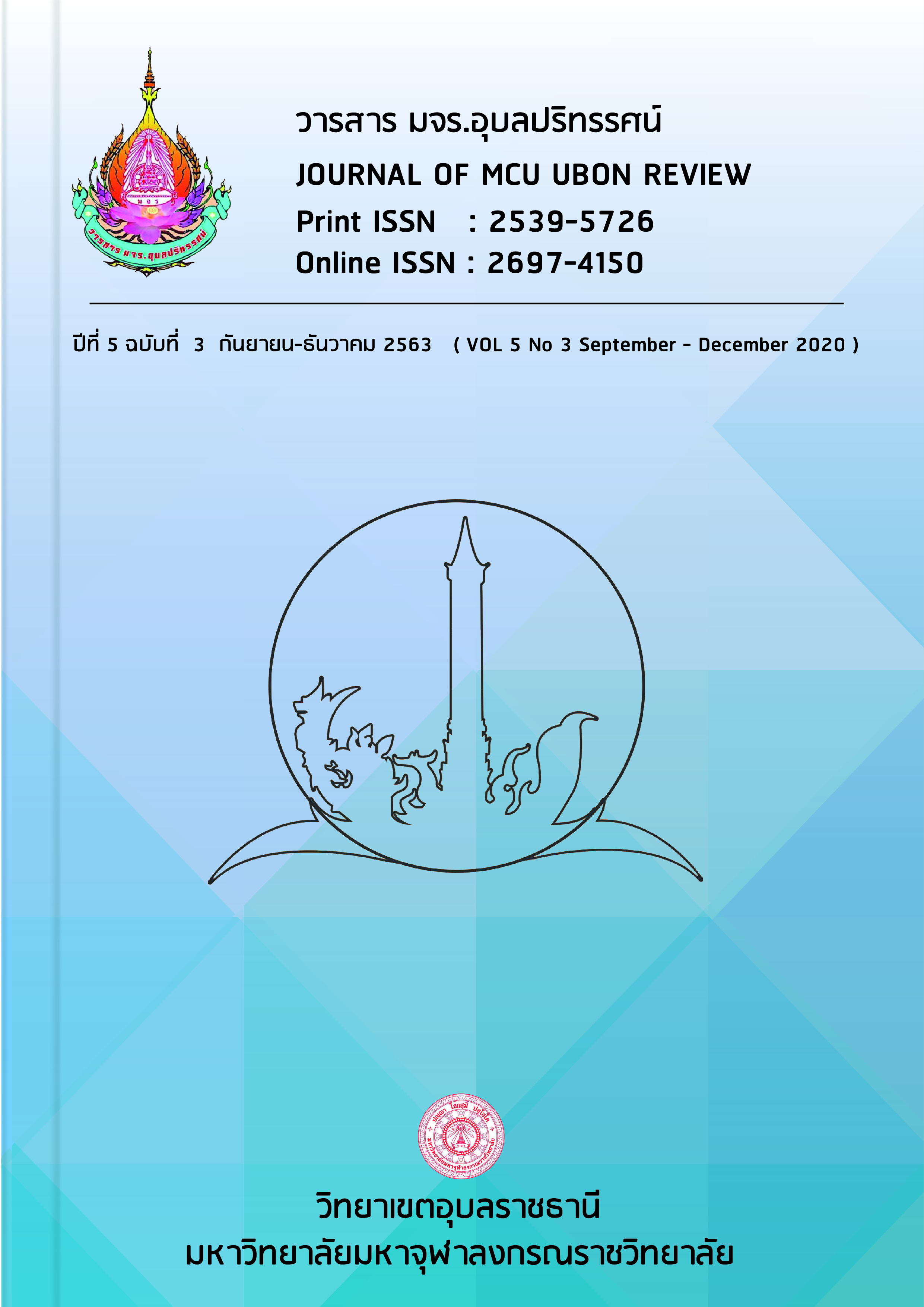A Commercialization of Education in Buddhist Ethical Perspective
Main Article Content
Abstract
This article titled objectives: 1) To study the concept of education business; 2) To study the ethical debates over education business; and 3) To analyze education business in the Buddhist ethical perspective.This research is a documentary research.
This research has studied the problems of 2 categories of education business i.e. servile arts and liberal arts. The first one aims at developing skills while the latter focuses on developing a full human potential. Two groups of debate were found in this research. The first group believes that both categories of education business are feasible because it is a basic right while the other group disagrees with education business reasoning that it violates the right to equally access education. When the debates of both groups were considered through Buddhist ethical perspective, it can be agreeable of both categories of education business as far as such education businesses do not contradict with the Buddhist ethical principles e.g. Right Livelihood, Threefold Training, wholesome and unwholesome deeds, contemplation of disadvantages and the four great authorities. If education businesses are implemented according to Buddhist ethical principles, the objection of the group that does not agree with the reason of violation of equal right to access education will be resolved.
Article Details
References
กรมการศึกษานอกโรงเรียน. (2538), การศึกษาตลอดชีวิตการศึกษาของคนไทยในยุคโลกาภิ
วัตน์. กรุงเทพฯ : กรมการศึกษานอกโรงเรียน
กรองแก้ว อยู่สุขและพิมพา สรายุทธ. (2532), ความรู้ทั่วไปเกี่ยวกับธุรกิจ.กรุงเทพฯ:ประยูร
วงศ์.
พระพรหมคุณาภรณ์ (ป.อ.ปยุตฺโต). (2552), การศึกษาทั่วไปเพื่อพัฒนามนุษย์. กรุงเทพฯ :
ศูนย์บริหารจัดการวิชาศึกษาทั่วไป มหาวิทยาลัยศรีนครินทรวิโรฒ.
______.(2551), ศิลปศาสตร์แนวพุทธ, พิมพ์ครั้งที่ 5. กรุงเทพฯ: มูลนิธิพุทธธรรม.
ฟริตจ็อฟ คาปร้า.(2554), จุดเปลี่ยนแห่งศตวรรษ เล่ม 1.แปลโดยพระประชา ปสนฺนธมฺโม
และคณะ, พิมพ์ครั้งที่ 5. กรุงเทพฯ : มูลนิธิโกมลคีมทอง.
สำนักงานส่งเสริมการศึกษานอกระบบและการศึกษาตามอัธยาศัยสำนักงานปลัดกระทรวง
ศึกษาธิการ, (2551), เอกสารสาระหลักการและแนวคิดประกอบการดำเนินงาน
กศน : คัมภีร์ กศน..กรุงเทพฯ : ห้างหุ้นส่วนจำกัด เอ็น.เอ.รัตนะเทรดดิ้ง.
สำนักงานคณะกรรมการพัฒนาการเศรษฐกิจและสังคมแห่งชาติ,(2560), แผนพัฒนา
เศรษฐกิจและสังคมแห่งชาติ ฉบับที่ 12 (พ.ศ.2560-2564). กรุงเทพฯ : สำนักงาน
คณะกรรมการ พัฒนาการเศรษฐกิจและสังคมแห่งชาติ.
อาชัญญา รัตนอุบล. (2562), การส่งเสริมการเรียนรู้สำหรับผู้ใหญ่และผู้สูงอายุในสังคมไทย.
กรุงเทพฯ : คณะครุศาสตร์ จุฬาลงกรณ์มหาวิทยาลัย.
อุรวดี รุจิเกียรติกำจ. (2535), ปรัชญาการศึกษาเบื้องต้น. ขอนแก่น : มหาวิทยาลัยขอนแก่น.
Carr, Albert Z. (1968), “IS Business Bluffing Ethical?” Harvard Business Review.
Harvard University Press.
Laura Hartman.(1998), Perspective in Business Ethics, International Edition.
Singapore : McGraw-Hill.


